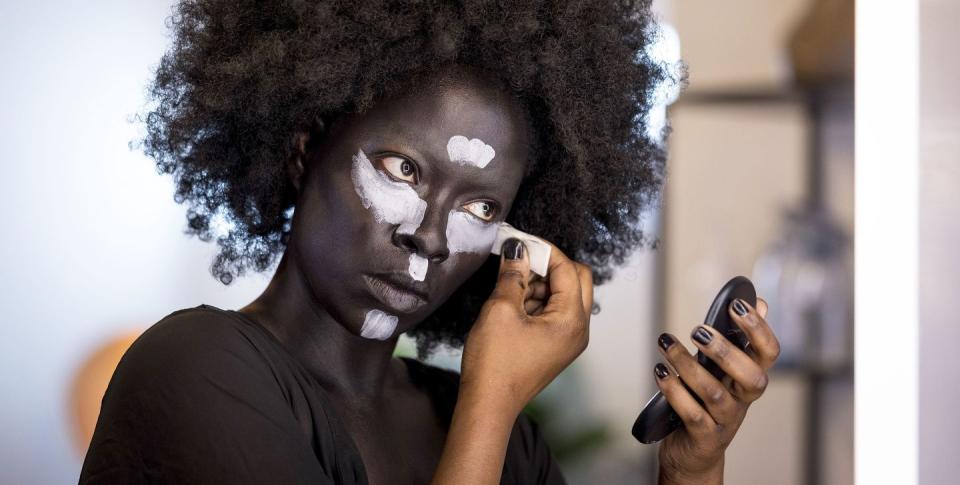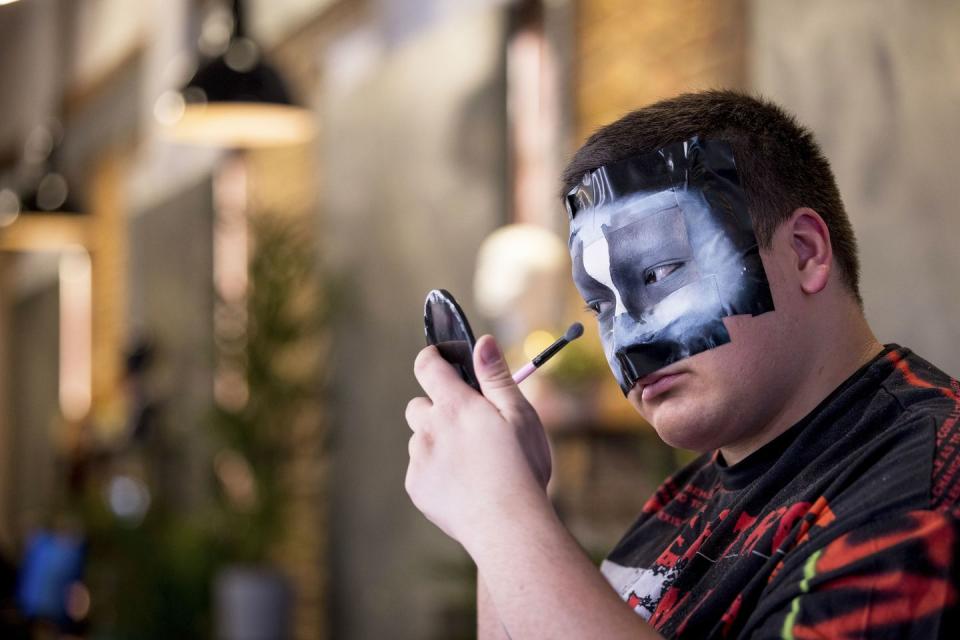Glow Up season 3 is a groundbreaking piece of telly

The search for the UK's next make-up star has kicked off once again with the return of BBC Three's Glow Up. As we welcomed this year's cohort of contestants, it was apparent just how diverse the cast was, showcasing people from all walks of life who were proud of who they are.
The show itself is also working to become more inclusive, with pronouns included in the introductions as seamlessly as their names, ages and professions. It's through that critical change that we discovered the show has its first nonbinary contestant, Jack, who uses they/them pronouns. It happened so organically that if you weren't paying much attention, you might have missed it, which is how it should be. While pronouns are there to make Jack feel more comfortable, it helps to normalise different pronouns, too.

Related: BBC's Glow Up announces host replacement after Stacey Dooley's exit
Other competitors include Lolli, a Black woman whose work is inspired by her African heritage. There's also Samah, a muslim MUA who proudly wears a hijab. She talked openly about how her job isn't typical for those who follow her religion: "A lot of the time people think that because you're a Muslim female you should be oppressed or you shouldn't have a personality.
"There's more to me than my hair or my body."

When we first met Ryley, it was easy to assume she hasn't faced adversity, but she removed her own make-up to reveal a birthmark on her face. She spoke about how she used to be ashamed of it and would cover it up, but now she makes it the focus of her work.
As the second challenge started, we learned more about Xavi, who told us his piece was based on how the world perceived him as someone with Asperger's. His eyes were covered by a black and white box to show what the world thinks his life is like, and beyond that the rest of his face was covered in colour to show the true complexity of his life.

We then moved onto Sophie, who is autistic. She similarly used the task to challenge stereotypes of neurodivergent people, focusing on masking – the behaviour that some neurodivergent people carry out to hide their condition – and painted a clown mask on her face with her natural face beneath. As a neurodivergent woman, this really struck a chord with me: it was only as an adult that I realised how much of my behaviour was masking, in turn limiting me and my life. To see someone discussing this in such a casual way felt revolutionary.
There were people of all sexualities and colours on-screen. It was amazing to see so many different identities, and people living their lives out loud without feeling that they have to hide who they are. It's a true testament to how make-up and beauty give people the confidence to be who they really are, allowing them to add that extra sparkle to their lives.

Related: Stacey Dooley's Glow Up announces its series 2 winner
It's so rare to see this much positive change in one show. Usually, it comes in drips and drabs, a gay person here, a disabled person there. It's very rare that the majority of the contestants on a reality TV show are from marginalised communities.
By showing such a wide range of people, Glow Up sets an example and raises the bar for what other reality competitions should be like. This level of diversity shouldn't be the exception, it should be the norm.
Glow Up series 3 is available on BBC iPlayer.
Digital Spy's digital magazine is back! Read every issue now with a 1-month free trial, only on Apple News+.
Interested in Digital Spy's weekly newsletter? Sign up to get it sent straight to your inbox – and don't forget to join our Watch This Facebook Group for daily TV recommendations and discussions with other readers.
You Might Also Like

 Yahoo News
Yahoo News 